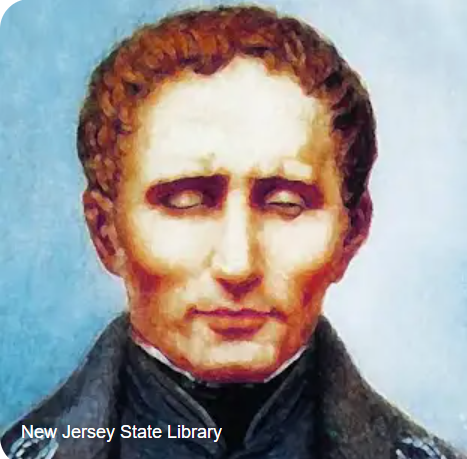The Inspiring Story of Louis Braille: Turning Darkness into Light
“The real mother of invention is need. Create a need in the world, and things will automatically come into existence.” — Louis Braille
In 1820, a young boy named Louis Braille was the victim of a tragic accident. Though his life was saved, he lost his eyesight and became blind. Louis had a deep passion for reading, spending hours with books every day before the accident. But with his newfound blindness, this beloved routine came to an abrupt halt.
Related article:
3. The Story of Louis Braille: Inventor of the Braille Code
A Wealthy Family’s Support
Louis’s parents were affluent and part of a culture in France where the rich maintained numerous servants to showcase their status. They quickly arranged for two tutors to read to Louis, but during bad weather, when the tutors couldn’t come, Louis would become restless and wander aimlessly, deeply feeling his disability. His parents, worried about his mental state, could only offer limited help given the era’s lack of resources for the disabled.
Louis’s Determination
Born in 1809, Louis lived for four years relying on his tutors. However, he soon decided he wanted to read on his own, despite his blindness. He realized he could compensate for his lost sight with his other senses, particularly his sense of touch.
In an era without tape recorders, there was no way to record books for the blind. So, Louis decided to make his fingertips his eyes. He envisioned a typewriter that could emboss words onto paper, allowing him to read by feeling the raised words with his fingers.
The Invention of Braille
Louis worked tirelessly, day and night, to create this typewriter. Despite the immense challenges, he was driven by a deep determination to succeed. His hard work paid off in 1839 when he invented a system that allowed blind people worldwide to read books using their fingertips.
Spreading the Gift of Braille
Louis devoted the rest of his life to promoting his system, traveling across Europe, meeting with kings, politicians, and educational experts to explain its benefits. He worked tirelessly until his death in 1852, but it wasn’t until after his death that his system gained widespread acceptance.
The Legacy of Louis Braille
Two years after Louis’s death, movements for the rights of the blind began in Europe, and his system was adopted widely. Fourteen European countries started converting major books into Braille. Today, the Braille system is used worldwide, with thousands of books published in Braille every year.
Louis Braille’s name lives on through this system. Every time a blind person reads a Braille letter or word, they are subconsciously acknowledging his efforts. His invention is one of the 20 greatest inventions in history, considered a “mother of invention” for its transformative impact.
The Real Mother of Invention
Louis Braille’s story reminds us of the saying, “Necessity is the mother of invention.” He showed the world that disabled people can live fulfilling lives, sparking a wave of inventions to aid those with disabilities. His legacy teaches us that human problems must be solved by humans.
If we understand this, we can solve many of the world’s issues. As Louis Braille’s life shows, true progress often comes from individual determination rather than waiting for government support or divine intervention.
A Call to Action
There are three kinds of people in the world: those who sacrifice their lives like Louis Braille to improve the future for others, those who learn from people like him and teach others, and those who wait passively for help. Our society needs more of the first kind — people who will fight to solve problems and make a difference.
Conclusion: Be a Leader
We all have the same potential, but only some of us use it to its fullest. Louis Braille didn’t let his blindness define him. Instead, he used his determination and creativity to leave a lasting legacy.
We should aspire to do the same — be leaders, not beggars, and use our abilities to make the world a better place.

Comments
Post a Comment